
Florian Hartig
@florianhartig.bsky.social
Professor at U. Regensburg, Germany #Ecology #Evolution #Statistics #MachineLearning
https://www.uni-regensburg.de/biologie-vorklinische-medizin/forschen/arbeitsgruppen/ag-hartig
https://www.uni-regensburg.de/biologie-vorklinische-medizin/forschen/arbeitsgruppen/ag-hartig
I‘ll answer here github.com/florianharti... , feel free to add to the discussion
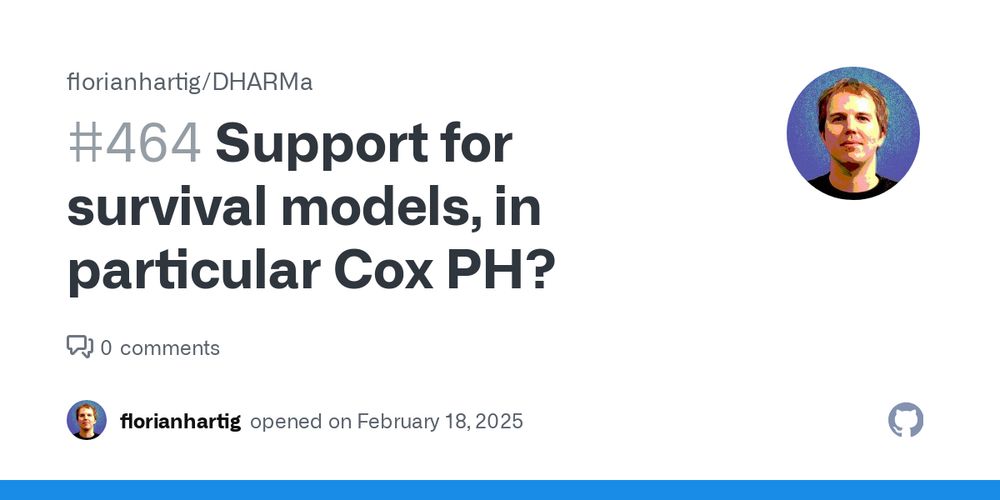
Support for survival models, in particular Cox PH? · Issue #464 · florianhartig/DHARMa
Via https://bsky.app/profile/staffan.betner.nu/post/3liessyzzqc2z
github.com
February 18, 2025 at 6:40 PM
I‘ll answer here github.com/florianharti... , feel free to add to the discussion
That being said, I agree that standard S3 functions schools conform to R defaults as far as possible and I’ll have a look at the example you point out … there are a number of other standard S3 functions that we still need to implement
December 12, 2024 at 7:53 PM
That being said, I agree that standard S3 functions schools conform to R defaults as far as possible and I’ll have a look at the example you point out … there are a number of other standard S3 functions that we still need to implement
Hi Norm, thanks for your comments - if you encounter any bugs or have suggestions for changes, please post them at github.com/citoverse/ci...
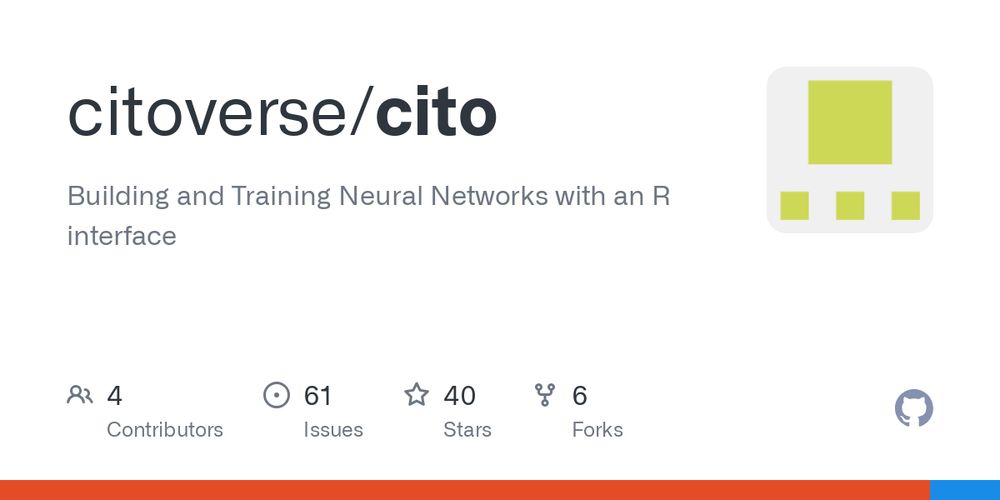
Issues · citoverse/cito
Building and Training Neural Networks with an R interface - Issues · citoverse/cito
github.com
December 12, 2024 at 7:51 PM
Hi Norm, thanks for your comments - if you encounter any bugs or have suggestions for changes, please post them at github.com/citoverse/ci...
deep neural networks in one line of R code, with convenient options for automatic hyperparameter tuning, xAI and bootstrapping.
The current CRAN version supports only fully connected DNNs, but our development version on GitHub also includes CNNs and multi-modal architectures.
The current CRAN version supports only fully connected DNNs, but our development version on GitHub also includes CNNs and multi-modal architectures.

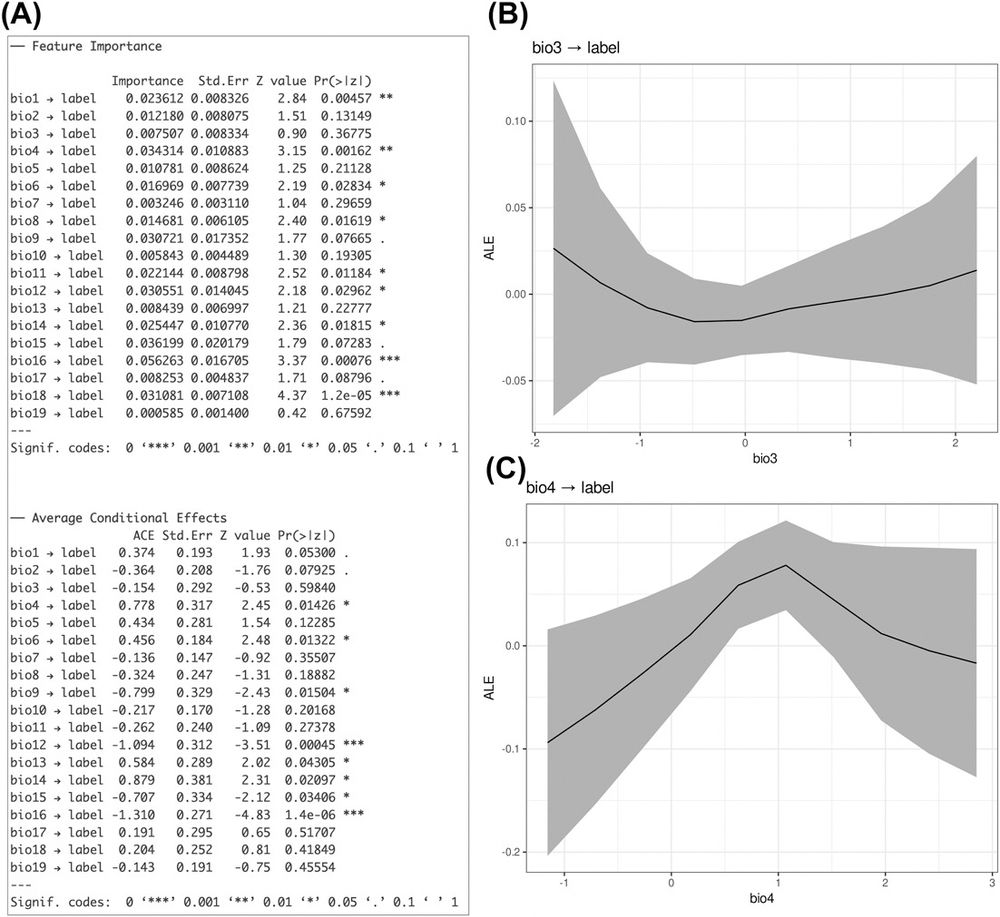
December 6, 2024 at 7:50 AM
deep neural networks in one line of R code, with convenient options for automatic hyperparameter tuning, xAI and bootstrapping.
The current CRAN version supports only fully connected DNNs, but our development version on GitHub also includes CNNs and multi-modal architectures.
The current CRAN version supports only fully connected DNNs, but our development version on GitHub also includes CNNs and multi-modal architectures.
Nice! How do you see this in relation to ggeffects?
December 2, 2024 at 9:14 AM
Nice! How do you see this in relation to ggeffects?
All details and code in arxiv.org/abs/2411.15105

Is there a robust effect of mainland mutualism rates on species richness of oceanic islands?
In island biogeography, it is widely accepted that species richness on island depends on the area and isolation of the island as well as the species pool on the mainland. Delavaux et al. (2024) sugges...
arxiv.org
November 25, 2024 at 8:04 AM
All details and code in arxiv.org/abs/2411.15105
But why does the effect appear in the first place? We believe the reason is that as mutualism rates are predicted by latitude, mutualism and latitude are perfectly nonlinear confounded. Using only a linear model, nonlinear effects of latitude create spurious effects of mutualism.
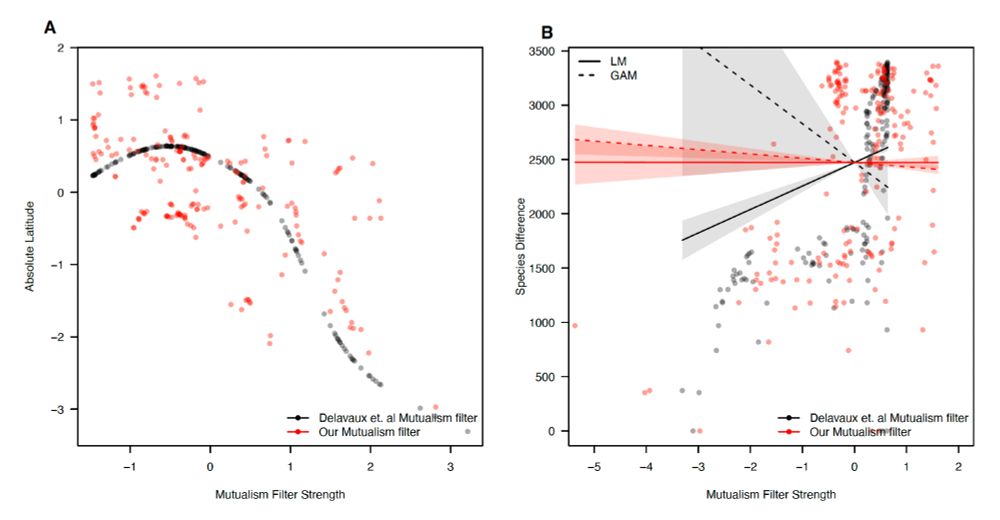
November 25, 2024 at 8:04 AM
But why does the effect appear in the first place? We believe the reason is that as mutualism rates are predicted by latitude, mutualism and latitude are perfectly nonlinear confounded. Using only a linear model, nonlinear effects of latitude create spurious effects of mutualism.
The main issue we see is that the mutualism covariate is not measured, but predicted by a very simple model that only depends on latitude (R2 = 0.14). Predicting mutualism rates with a more precise model (R=0.39) removes any effect of this covariate in the main regression.
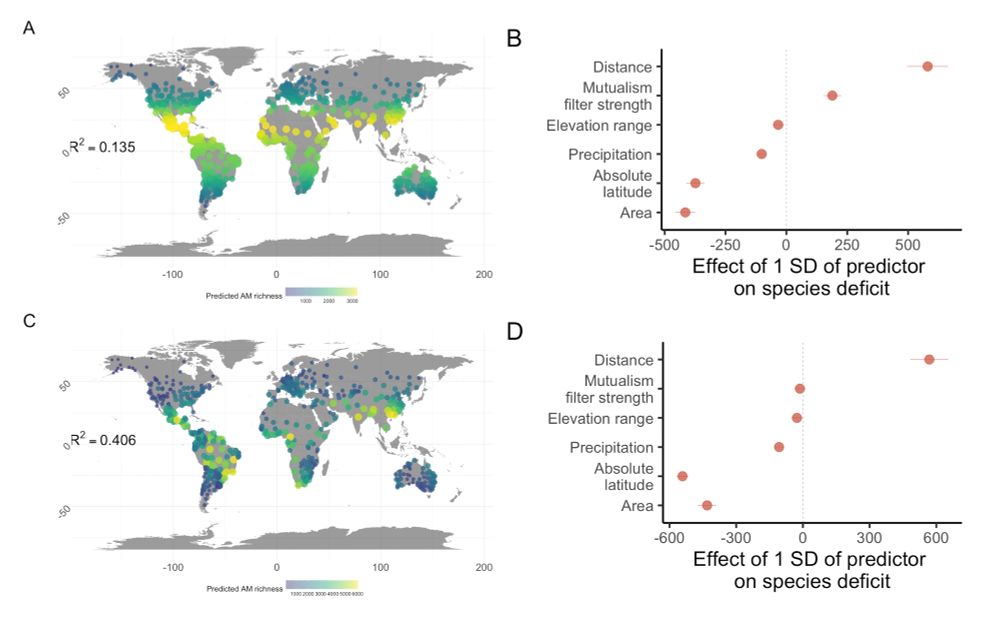
November 25, 2024 at 8:04 AM
The main issue we see is that the mutualism covariate is not measured, but predicted by a very simple model that only depends on latitude (R2 = 0.14). Predicting mutualism rates with a more precise model (R=0.39) removes any effect of this covariate in the main regression.
Well, I've heard it said that great minds think alike ... ;)

November 24, 2024 at 8:36 PM
Well, I've heard it said that great minds think alike ... ;)

